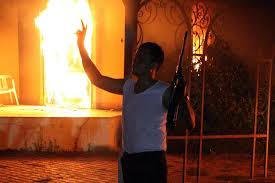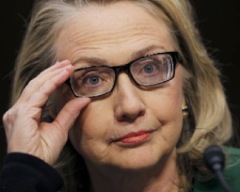 The renewed controversy over the Obama administration’s handling of the Benghazi terrorist assaults reinforces two broad criticisms made of Mr. Obama. The first is that his foreign policy decision-making is heavily shaped by a national security inner team, drawn largely from the young staffers in his 2008 presidential campaign, that habitually subjects policy to political machinations. The second is that this team presides over an especially defective policy apparatus.
The renewed controversy over the Obama administration’s handling of the Benghazi terrorist assaults reinforces two broad criticisms made of Mr. Obama. The first is that his foreign policy decision-making is heavily shaped by a national security inner team, drawn largely from the young staffers in his 2008 presidential campaign, that habitually subjects policy to political machinations. The second is that this team presides over an especially defective policy apparatus.
As noted in earlier posts, these are charges even former administration staffers and otherwise sympathetic pundits advance. As Vali Nasr, who worked on AfPak issues in the first term, argues in his new book, The Dispensable Nation:
….[T]he president had a truly disturbing habit of funneling major foreign-policy decisions through a small cabal of relatively inexperienced White House advisors whose turf was strictly politics. Their primary concern was how any action in Afghanistan or the Middle East would play on the nightly news, or which talking point it would give the Republicans [emphasis added].
This theme is echoed by others, including David Rothkopf and Thomas Ricks, both commentators who can hardly be labeled as partisan. David Ignatius, the foreign policy columnist at the Washington Post, likewise contends that the administration’s response to key international issues is usually “driven by messaging priorities rather than sound, interests-based policy.” On Benghazi in particular, he argues that the White House “spent more time thinking about what to say than what to do.”
The second theme, that of managerial incompetence, is underscored by Rosa Brooks, a former administration official at the Pentagon’s policy shop. The Obama team, she noted recently, has created “an exceptionally dysfunctional and un-visionary national security architecture – one that appears to drift from crisis to crisis with little ability to look beyond the next few weeks.” This chaos, she claimed, results in “shallow discussions and poor decisions.”
Both critiques were given new life by last week’s release of 41 declassified State Department documents showing that White House staffers injected election-season spin into the official story-line about the September 2012 jihadi assaults on the U.S. diplomatic mission and a CIA annex in Benghazi that killed J. Christopher Stevens, the U.S. ambassador to Libya, and three other Americans. Continue reading

